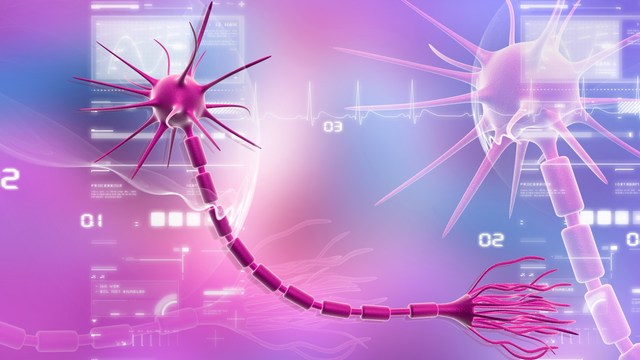 Divakaran Dileep/PhotoSpin
Divakaran Dileep/PhotoSpin
Amyotrophic lateral sclerosis (ALS), also known as Lou Gehrig's disease, is a nightmare of an illness. This motor neuron disease progresses quickly, damaging neurons (nerve cells) and destroying muscle control, ultimately ending in death.
More than 12,000 Americans have been diagnosed with ALS, the National ALS Registry reports.
Early symptoms are often mild and may not be noticed at first. As they continue to become more severe, however, the individual will notice increasing problems with their hands, legs, balance, coordination, and speech difficulties, just to name a few areas that are affected.
ALS usually runs its brutal course in three to five years though in 10 percent of cases, survival may last for 10 years or more. Respiratory failure is usually the final blow, as muscles in the chest wall and diaphragm no longer function.
There are a few optimistic notes recently as researchers have been learning more about the disease.
A study performed on mice at the Columbia University Medical Center (CUMC) has found that the gene matrix metalloproteinase-9 (MMP-9) may have a significant role in motor neuron degeneration in ALS, according to an article on Sciencedaily.com.
This study was published online on January 23, 2014 in the journal Neuron. The paper is titled, "Neuronal matrix metalloproteinase-9 is a determinant of selective neurodegeneration."
Not all neurons are susceptible to ALS. Other research has indicated that MMP-9 protein (a product of product of MMP-9) shows up in all ALS-vulnerable motor neurons but not in the neurons which are resistant to ALS.
Christopher E. Henderson, PhD, the Gurewitsch and Vidda Foundation Professor of Rehabilitation and Regenerative Medicine, professor of pathology & cell biology and neuroscience (in neurology), and co-director of Columbia's Motor Neuron Center was the study leader. The article quoted Henderson as saying, "... having MMP-9 is an absolute predictor that a motor neuron will die if the disease strikes, at least in mice."
Co-lead author Krista J. Spiller was quoted in the same article as saying, "This effect on nerve-muscle synapses is the largest ever seen in a mouse model of ALS." Spiller is a former graduate student in Dr. Henderson's laboratory and is a postdoctoral fellow at the University of Pennsylvania.
Henderson said, "Our goal is to learn more about MMP-9 and related pathways and to identify a new set of therapeutic targets."
Research from Harvard Stem Cell Institute (HSCI) involving human motor neurons and a mouse model may lead to a breakthrough in treating ALS. The study was published on August 6, 2014 in Science Translational Medicine.
Earlier research from 2007 indicated that glial cells of the nervous system in a mouse model of ALS were linked with motor neuron degeneration. In 2008, similar findings were seen in human stem cell motor neurons.
Researchers posited that prostanoid molecules (involved in inflammation) might be involved with the glial cells.
Continued researchers seems to confirm that a change in prostanoid receptors in glial cells is linked with ALS. When changed receptors are blocked, there is a reduction in ALS damage.
Harvard professor of Stem Cell and Regenerative Biology (HSCRB) Kevin Eggan was reported in a Sciencedaily.com article as saying, "If we can inhibit this receptor in an ALS patient, we might slow down the progression of the disease, and that would be a huge step."
"This is a very exciting period for those whose lives are threatened by ALS," Eggan said.
Sources:
Amyotrophic Lateral Sclerosis (ALS) Fact Sheet.NINDS.NIH.gov. Retrieved Aug. 26, 2014.
http://www.ninds.nih.gov/disorders/amyotrophiclateralsclerosis/detail_AL...
Study identifies gene tied to motor neuron loss in ALS. Sciencedaily.com. Retrieved Aug. 26, 2014.
http://www.sciencedaily.com/releases/2014/01/140123095025.htm
Another potential ALS treatment avenue identfied by researchers. Sciencedaily.com. Retrieved Aug. 26, 2014.
http://www.sciencedaily.com/releases/2014/08/140806142207.htm
Visit Jody's website at http://www.ncubator.ca
Reviewed August 27, 2014
by Michele Blacksberg RN





Add a CommentComments
There are no comments yet. Be the first one and get the conversation started!